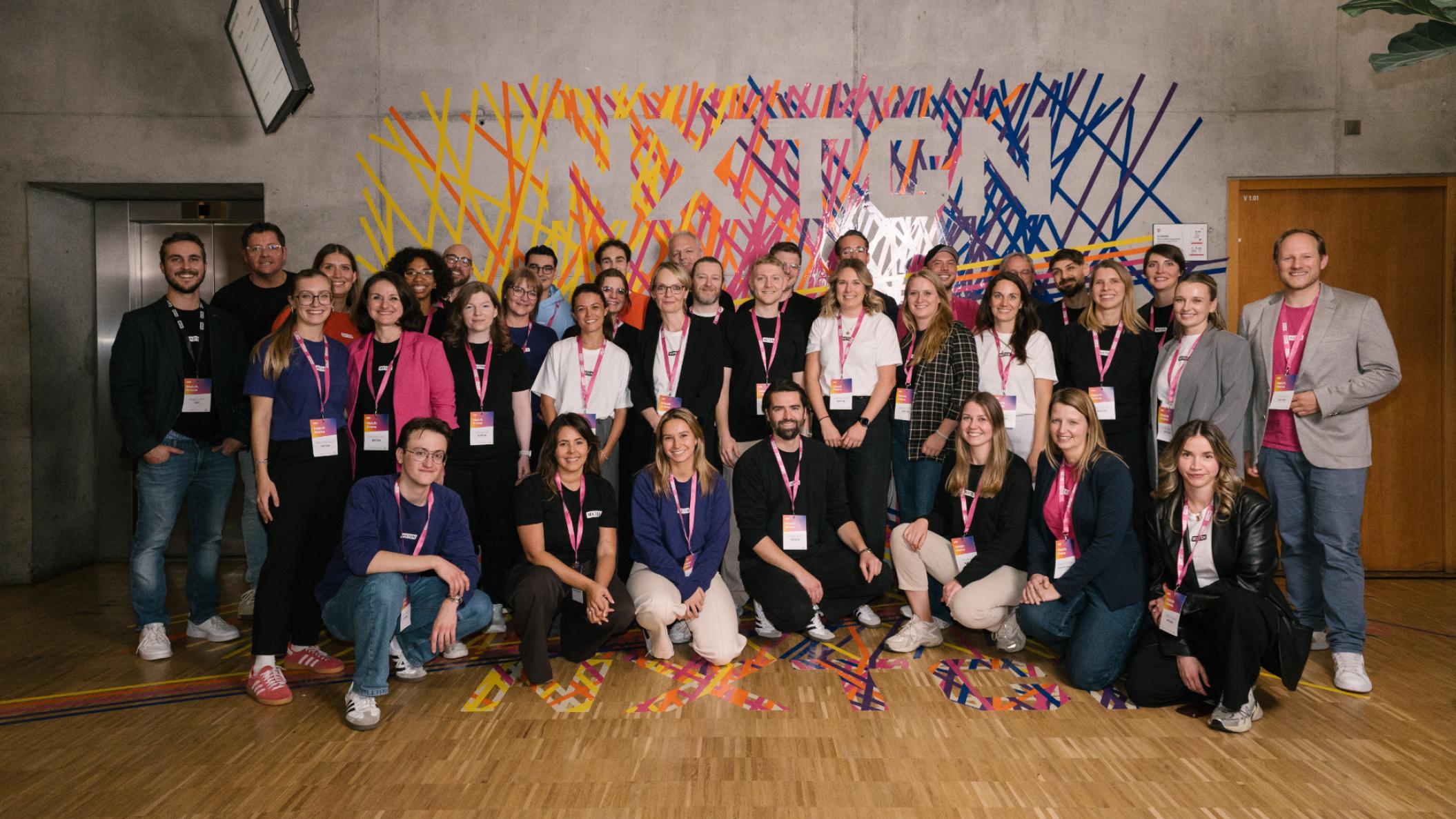Better together: gut microbiome communities’ resilience to drugs

Bacteria that are sensitive to drugs can become resilient when part of communities, with the help of cross-protection strategies

Summary
- Many common drugs can impact the composition of gut microbiome communities.
- EMBL scientists compared directly, for the first time, the effect of 30 diverse drug treatments on bacteria when they were grown in isolation versus as part of a complex community.
- The researchers found that the impact of drugs on bacteria is often less pronounced when they are part of a community, due to cross-protection strategies.
- Mapping and understanding emergent drug-microbiome interactions within the community context may help scientists design improved therapies with fewer side effects and higher drug efficacy in the future.
Many human medications can directly inhibit the growth and alter the function of the bacteria that constitute our gut microbiome. EMBL Heidelberg researchers have now discovered that this effect is reduced when bacteria form communities.
In a first-of-its-kind study, researchers from EMBL Heidelberg’s Typas, Bork, Zimmermann, and Savitski groups, and many EMBL alumni, including Kiran Patil (MRC Toxicology Unit Cambridge, UK), Sarela Garcia-Santamarina (ITQB, Portugal), André Mateus (Umeå University, Sweden), as well as Lisa Maier and Ana Rita Brochado (University Tübingen, Germany), compared a large number of drug-microbiome interactions between bacteria grown in isolation and those part of a complex microbial community. Their findings were recently published in the journal Cell.
For their study, the team investigated how 30 different drugs (including those targeting infectious or noninfectious diseases) affect 32 different bacterial species. These 32 species were chosen as representative of the human gut microbiome based on data available across five continents.
They found that when together, certain drug-resistant bacteria display communal behaviours that protect other bacteria that are sensitive to drugs. This ‘cross-protection’ behaviour allows such sensitive bacteria to grow normally when in a community in the presence of drugs that would have killed them if they were isolated.
“We were not expecting so much resilience,” said Sarela Garcia-Santamarina, a former postdoc in the Typas group and co-first author of the study, currently a group leader in the Instituto de Tecnologia Química e Biológica (ITQB), Universidade Nova de Lisboa, Portugal. “It was very surprising to see that in up to half of the cases where a bacterial species was affected by the drug when grown alone, it remained unaffected in the community.”
The researchers then dug deeper into the molecular mechanisms that underlie this cross-protection. “The bacteria help each other by taking up or breaking down the drugs,” explained Michael Kuhn, Research Staff Scientist in the Bork Group and a co-first author of the study. “These strategies are called bioaccumulation and biotransformation respectively.”
“These findings show that gut bacteria have a larger potential to transform and accumulate medicinal drugs than previously thought,” said Michael Zimmermann, Group Leader at EMBL Heidelberg and one of the study collaborators.
However, there is also a limit to this community strength. The researchers saw that high drug concentrations cause microbiome communities to collapse and the cross-protection strategies to be replaced by ‘cross-sensitisation’. In cross-sensitisation, bacteria which would normally be resistant to certain drugs become sensitive to them when in a community – the opposite of what the authors saw happening at lower drug concentrations.
“This means that the community composition stays robust at low drug concentrations, as individual community members can protect sensitive species. But, when the drug concentration increases, the situation reverses. Not only do more species become sensitive to the drug and the capacity for cross-protection drops, but also negative interactions emerge, which sensitise further community members. We are interested in understanding the nature of these cross-sensitisation mechanisms in the future.”
– Nassos Typas, EMBL group leader and senior author of the study
Just like the bacteria they studied, the researchers also took a community strategy for this study, combining their scientific strengths. The Typas Group are experts in high-throughput experimental microbiome and microbiology approaches, while the Bork Group contributed with their expertise in bioinformatics, the Zimmermann Group did metabolomics studies, and the Savitski Group did the proteomics experiments. Among external collaborators, EMBL alumnus Kiran Patil’s group at Medical Research Council Toxicology Unit, University of Cambridge, United Kingdom, provided expertise in gut bacterial interactions and microbial ecology.
As a forward-looking experiment, authors also used this new knowledge of cross-protection interactions to assemble synthetic communities that could keep their composition intact upon drug treatment.
“This study is a stepping stone towards understanding how medications affect our gut microbiome. In the future, we might be able to use this knowledge to tailor prescriptions to reduce drug side effects,” said Peer Bork, Group Leader and Director at EMBL Heidelberg. “Towards this goal, we are also studying how interspecies interactions are shaped by nutrients so that we can create even better models for understanding the interactions between bacteria, drugs, and the human host,” added Patil.
Source article(s)
Emergence of community behaviors in the gut microbiota upon drug treatment
Garcia-Santamarina S., Kuhn M., et al
Cell 24 September 2024
10.1016/j.cell.2024.08.037




